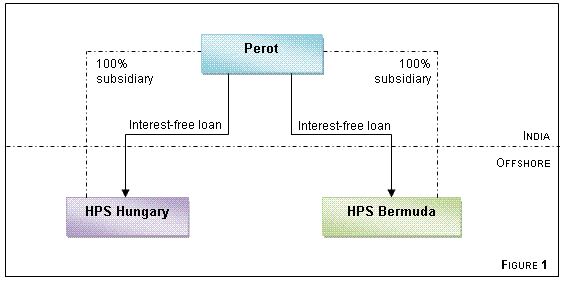January 8, 2020
"NO FREE LOANS!" SAY INDIAN TRANSFER PRICING AUTHORITIES
The Delhi Income Tax Appellate Tribunal (“ITAT”) has ruled, in the case of Perot Systems TSI (India) Ltd v. Dy. CIT, that provision of an interest-free loan to a non-resident associated enterprise (“AE”) would be subject to Indian transfer pricing regulations under Section 92 of the Income Tax Act, 1961 (“the Act”). Consequently the lending Indian entity, Perot Systems TSI (India) Ltd (the “Taxpayer”),was subject to an upward adjustment and required to pay tax on interest income calculated at arms’ length.
Background
The Taxpayer is an Indian company engaged in the business of designing and developing technology enabled business transformation solutions and providing ancillary services. In the period between January-February 2001, the Taxpayer extended interest free loans to two of its wholly owned subsidiaries. The Bermuda based HPS Global Systems (Bermuda) Limited (“HPS Bermuda”) received a loan of USD 1.5 million, while the Hungary based HPS Global Systems Hungary Liquidity Management LLC (“HPS Hungary”) received a loan of USD 4.6 million. A diagrammatic representation of the arrangement is contained below in Figure 1.
During assessment proceedings, the Transfer Pricing Officer (“TPO”) made an upward adjustment to the income of the Taxpayer, on the grounds that the arrangements were in violation of the transfer pricing regulations. The Taxpayer appealed before the Commissioner of Income Tax (“CIT”), arguing that the advances were in the nature of quasi-equity and that no interest was required to be paid. In substantiation, the Taxpayer stated that HPS Hungary and HPS Bermuda were start-ups which would make step down investments and did not carry on significant business activities. Therefore it was argued that the expected distributions would be in the nature of dividends and not interest. The Taxpayer further argued in respect of HPS Hungary, that the company had a high degree of leverage and that the loan advances should be considered equity as this would be their classification under the Hungarian thin capitalization regulations. It was argued that the thin capitalization rules would re-characterize the loan advances as quasi-equity, resulting in an impossibility of payment of interest to the Taxpayer. In response, it was argued by the TPO that debt returns are distinguishable from equity returns, which are profit-linked and involve voting rights. It was argued that the sole purpose of lending to borrowers in low tax jurisdictions such as Bermuda was to bring down the tax burden of the group. The CIT held that the advance amounts were a case of debt-simpliciter and upheld the upward adjustment. With respect to the argument on ‘thin capitalization’, it held the Hungarian thin capitalization rules merely disallowed a claim for deduction in respect of interest payments and did not restrict outward remittances. Further, the CIT refused to accept the Taxpayer’s ground that an approval from the Reserve Bank of India meant that the transaction was at an arms’ length, citing the differences between tax laws and the objectives of foreign exchange legislation.
The case went up in appeal before the ITAT. The Taxpayer argued that income means real income and not fictitious income. Further, it was argued that the interest free advances were by reason of commercial expediency, that there was no income earned and that no such notional income could be subject to tax. The ITAT accepted neither of these arguments. It was held that the issue of ‘real income’ did not arise as this was not an ordinary business transaction, but an international transaction between related parties, requiring arm’s length as per the explicit provisions of the Act. Further, the argument on ‘commercial expediency’ and non availability of lenders for startups was held to not be sufficient justification for not charging interest. Therefore, the ITAT upheld the upward adjustment and concurred with the conclusions of the CIT, that the effect of the arrangements was to shift profits from India to the AEs, one of which was situated in a low tax jurisdiction. This resulted in reduction of the tax for the group and was clearly in violation of the Indian transfer pricing regulations.
Analysis
This case throws up some interesting arguments as to the application of Indian transfer pricing provisions, essence of which is to identify cases resulting in income shifting between related parties. The ITAT has, by recognizing this fact, reemphasized the importance of ensuring that international transactions between related parties are conducted at arm’s length. Parties entering into arrangements with associated enterprises should be aware of and make efforts to ensure compliance with the transfer pricing regulations.


